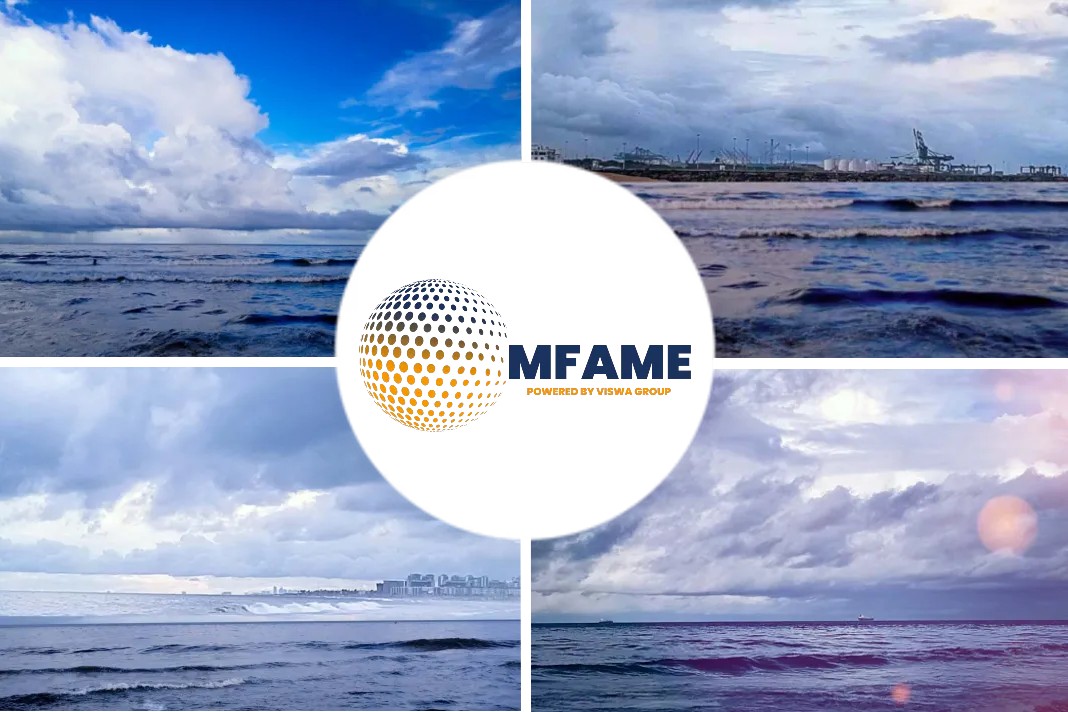- Eagle Bulk completes 1st biofuel-powered test voyage in cooperation with GoodFuels.
- Eagle continues to actively explore ways to decarbonize its fleet.
- GoodFuels’ advanced biofuels are produced from certified renewable feedstocks labelled as 100% waste or residue.
- Sustainable biofuels are among leading contenders for marine decarbonisation.
Eagle Bulk Shipping completes its first sustainable biofuel voyage in cooperation with GoodFuels, a Dutch biofuels pioneer for the global transport industry, reports Offshore Energy.
CO2 emission reduction
The 2015-built Ultramax bulker Sydney Eagle was bunkered with GoodFuels’ marine biofuel during its port call at Terneuzen, the Netherlands.
Basis the company’s calculations, the vessel’s well-to-exhaust CO2 emissions were reduced by approximately 90% during its voyage, as compared to utilizing traditional bunker fuel.
“Eagle continues to actively explore ways to decarbonize its fleet, while maximizing efficiency in line with international targets to reduce carbon intensity and absolute emissions from shipping,” Jonathan Dowsett, Director of Fleet Performance at Eagle Bulk Shipping, said.
Working with GoodFuels
“We are … pleased with the results of our first biofuel-powered test voyage and look forward to working with GoodFuels in the future.”
Sea Cargo Charter
A year ago, Eagle Bulk became a signatory to the Sea Cargo Charter. The charter provides a global framework for aligning chartering activities with responsible environmental behavior in order to promote international shipping’s decarbonization.
Biofuels and shipping decarbonization
Specifically, GoodFuels’ advanced biofuels are produced from certified renewable feedstocks labelled as 100% waste or residue that cannot be used for any higher quality application or recycling, such as used cooking oil and waste animal fats.
IMO sulphur cap
The biofuels “drop in” to tanks without any alterations to the fuel infrastructure or marine engines, and ensure compliance with the International Maritime Organization’s (IMO) Sulphur Cap as they are virtually free of all SOX emissions.
GHG emissions reduction
This announcement comes at a critical time as the maritime industry faces an urgent need to reduce its GHG emissions and commit to sustainable shipping.
Owners and operators, such as Eagle Bulk Shipping, are already required to meet the 0.5% sulphur limit as enforced in January 2020, and recently adopted regulation will require ships to improve their energy efficiency, in line with the IMO’s target to reduce the average carbon intensity of shipping by at least 40% by 2030, and 70% by 2050.
Marine decarbonisation
Sustainable biofuels are among leading contenders for marine decarbonisation due to their drop-in characteristics, well-tuned infrastructure, and ability to enable stakeholders to comply with current and imminent environmental legislation. They are also one of the few solutions that already exist on the market today and are available for all vessel types.
Did you subscribe to our daily newsletter?
It’s Free! Click here to Subscribe!
Source: Offshore Energy
























